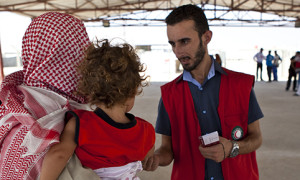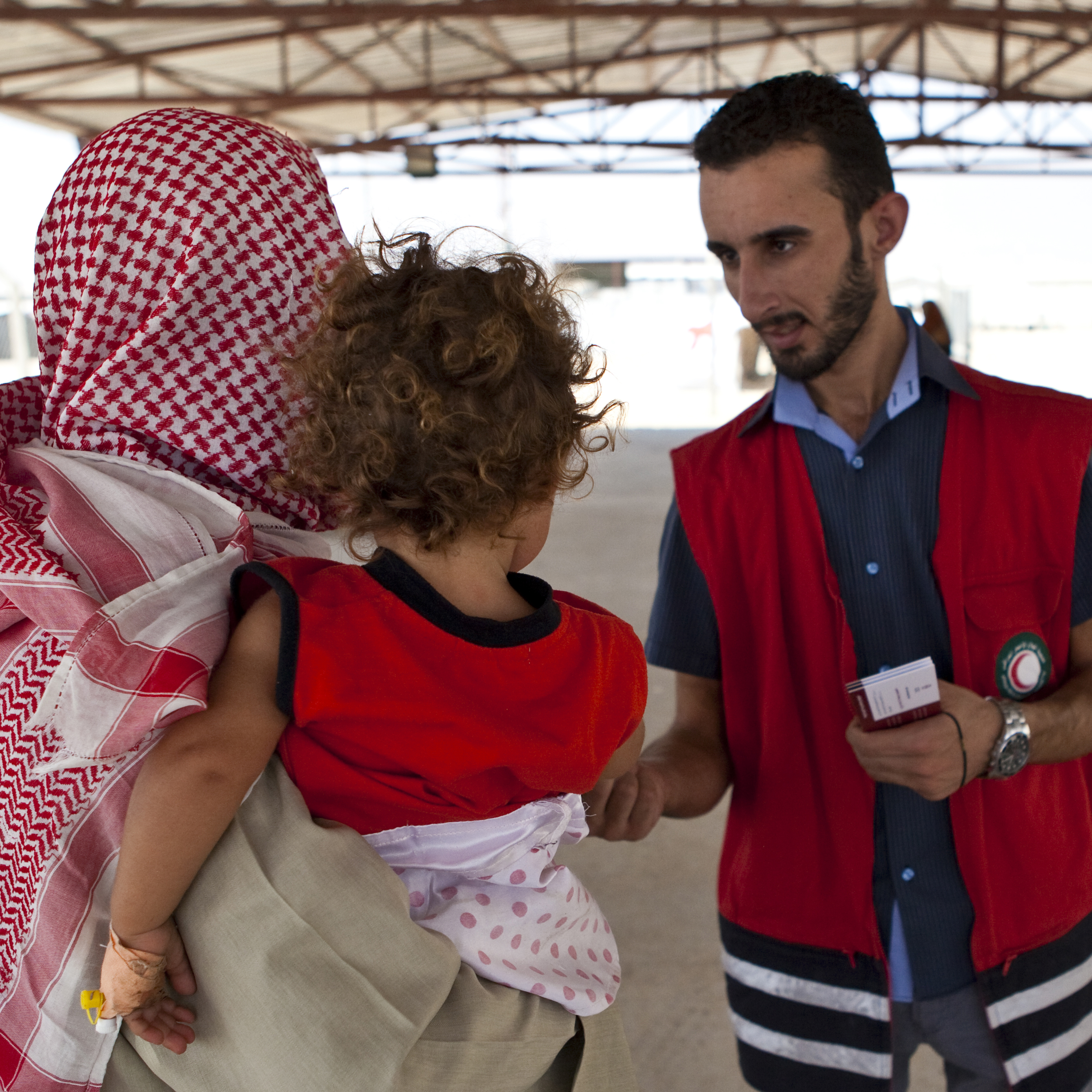 The Red Cross doesn’t take sides. Neutrality, the third of the Seven Fundamental Principles, helps us effectively fulfill our mission of preventing and alleviating human suffering.
The Red Cross doesn’t take sides. Neutrality, the third of the Seven Fundamental Principles, helps us effectively fulfill our mission of preventing and alleviating human suffering.
The Red Cross idea was born in 1859, when Henry Dunant, a young Swiss man, came upon the scene of a bloody battle in Solferino, Italy, between the armies of imperial Austria and the Franco-Sardinian alliance. Some 40,000 men lay dead or dying on the battlefield and the wounded were lacking medical attention. Neither side could attend to their wounded without being fired upon.
Recognizing this dilemma, Dunant organized local people to bind the soldiers’ wounds and to feed and comfort them. All soldiers. On both sides. Out of this act, the idea for the Red Cross was born.
When we side with neither adversary, we’re more likely to gain everyone’s trust.
It is neutrality that allows American Red Cross social workers to speak with migrants along the U.S.-Mexico border, ease their worries, and reconnect them with family back home. It is neutrality that convinces enemy combatants to lay down their weapons, if only for a moment, so Syrian Arab Red Crescent volunteers can safely evacuate the injured and bring food and medicine to people stuck inside a combat zone. Helping all people in need, no matter their politics, nor their position. Truly a mission of which to be proud.





